Environmental Changes and Sustainability of Korea
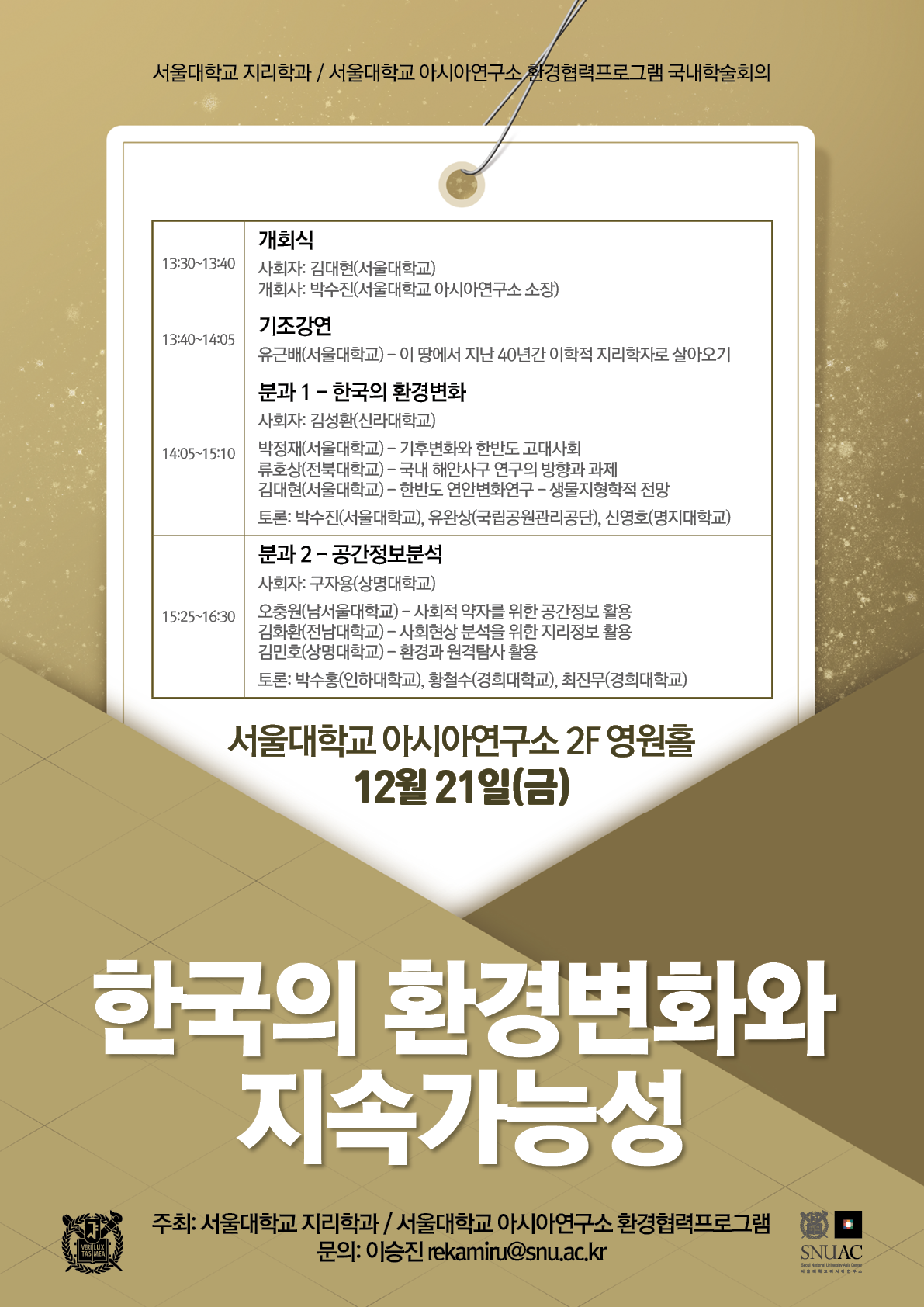
Workshop
- Date & Time: Friday, 21 December, 2018, 13:30-17:00
- Venue: Yeongwon Hall(#210), SNUAC(Bldg#101)
- Speakers:
Professor Jungjae Park (Dept. of Geography, SNU)
Professor Hosang Ryu (Dept. of Geography, Chonbuk Nat’l Univ.)
Professor Daehyun Kim (Dept. of Geography, SNU)
Professor Choongwon Oh (Dept. of Spatial Information Engineering, Namseoul Univ.)
Professor Hwahwan Kim (Dept. of Geography, Chonnam Nat’l Univ.)
Professor Minho Kim (Dept. of Geography, Sangmyung Nat’l Univ.) - Organizers: Department of Geography, SNU & SNUAC Environment Cooperation Program
- Inquiry: Seungjin Lee / rekamiru@snu.ac.kr
Abstract
Various environmental changes including rapid climate change and the resulting micro-landform and weather pattern changes are developing severity as a risk to Korea’s sustainable development. However, the region-based climate change research is difficult to be incorporated into larger-scale research encompassing the mountain-maritime regions. The literature on the sustainability of the entire territory is therefore limited. This workshop seeks to share the perspectives of the field of physical geography on environmental problem diagnosis as well as promote stimulating discussions on ways to find a solution for research problems mentioned above.
Review
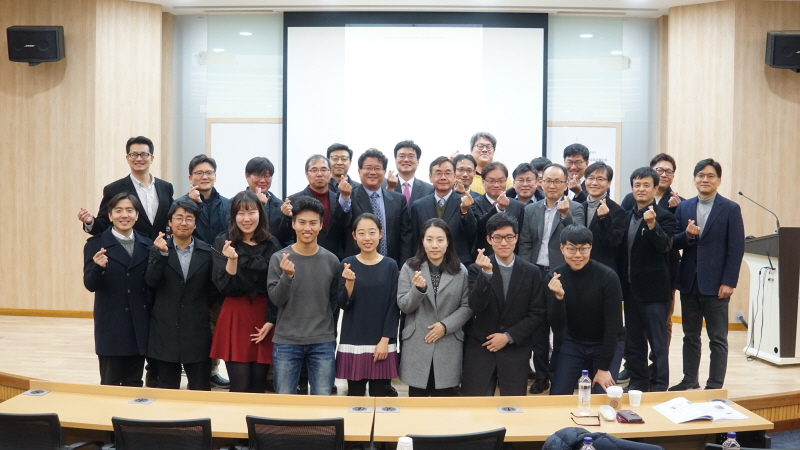
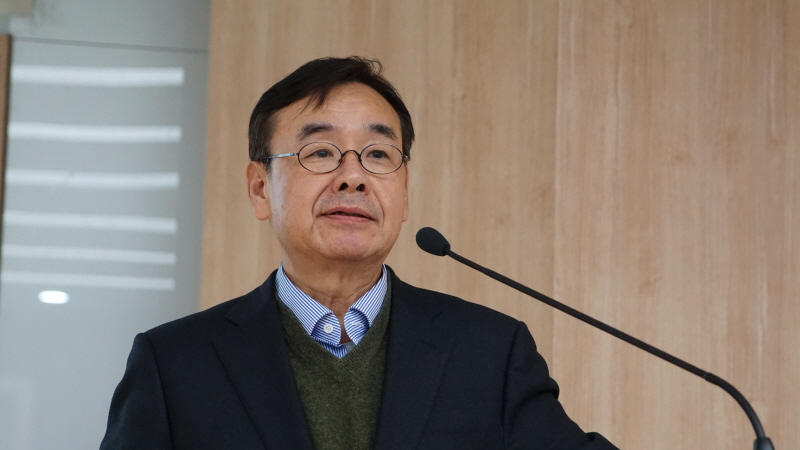
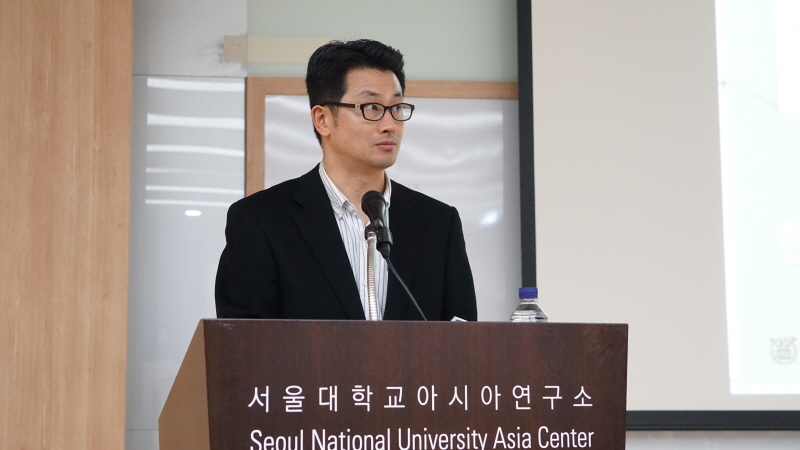
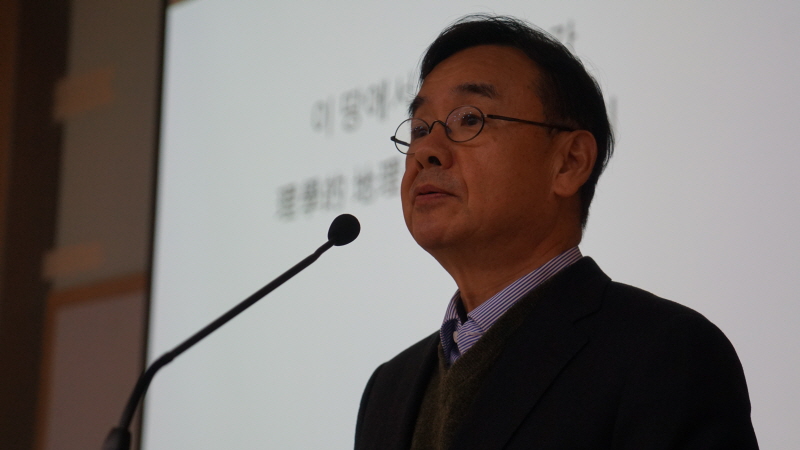
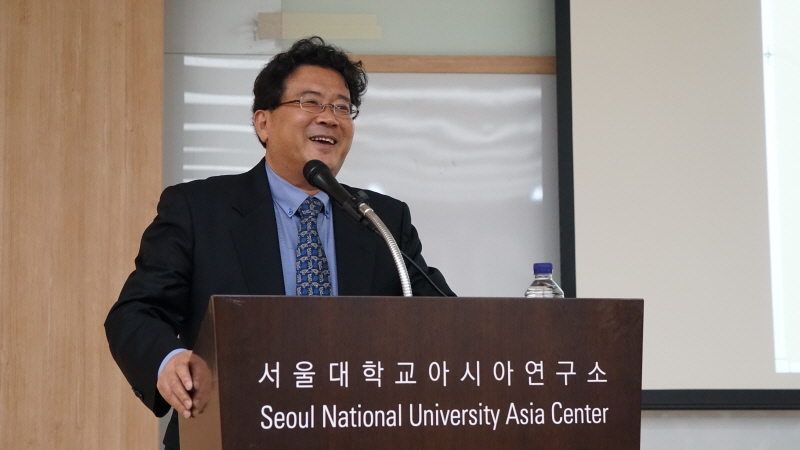
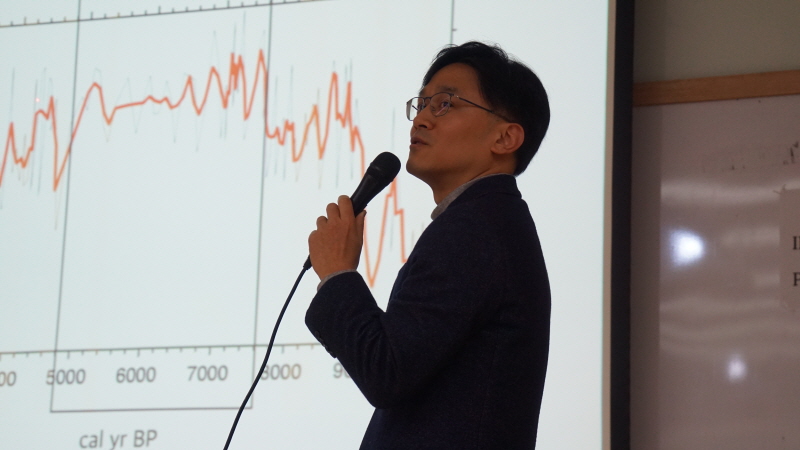
Various environmental changes including rapid climate change and the resulting micro-landform and weather pattern changes are developing severity as a risk to Korea’s sustainable development, and this workshop sought to reinforce limited research scope on the sustainability of the mountain-maritime regions. Professor Keun Bae Yu commenced the event with his keynote speech on ‘Living as the Physical Science Geographer for 40 Years.’ The keynote speech was followed by various presentations and discussions on environmental changes in Korea and its sustainability encompassing diverse research topics including ‘Holocene Cooling Events and their Impact on Korean Ancient Societies’ and ‘Spatial Data Application Plan for the Disadvantaged.’
